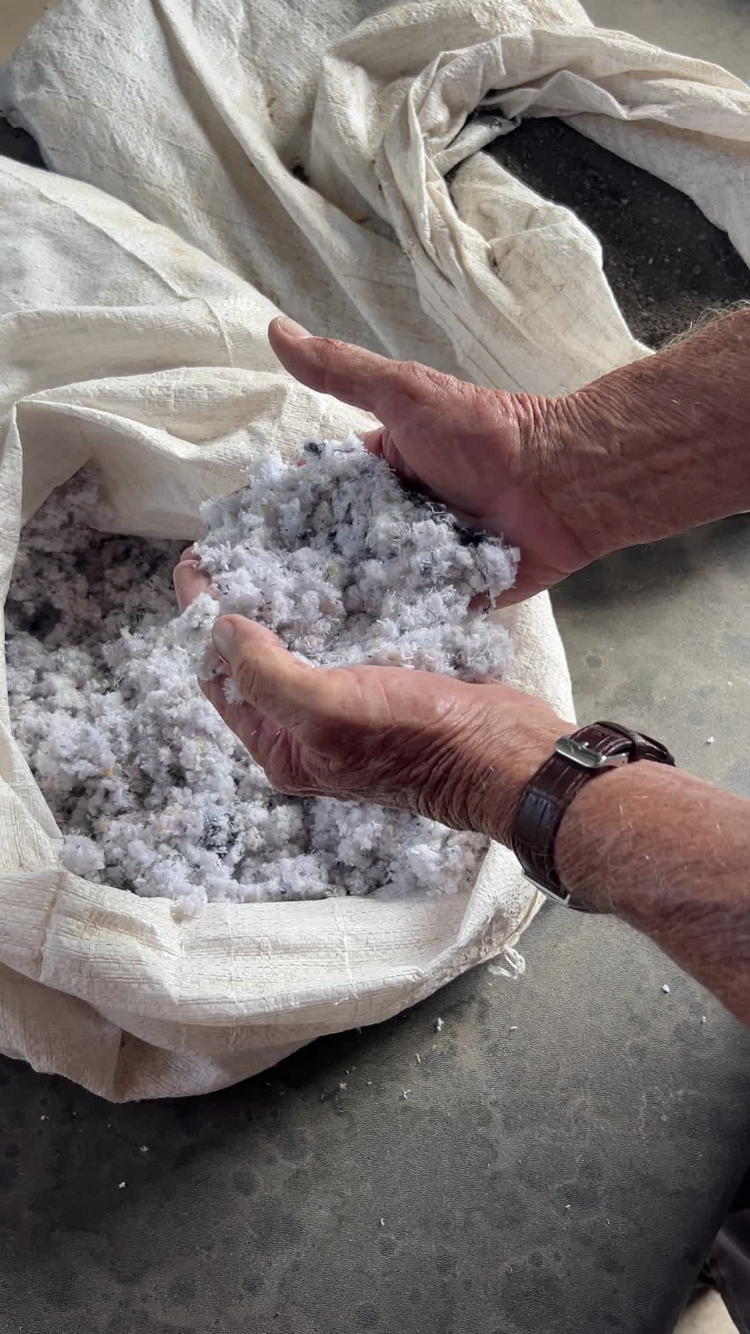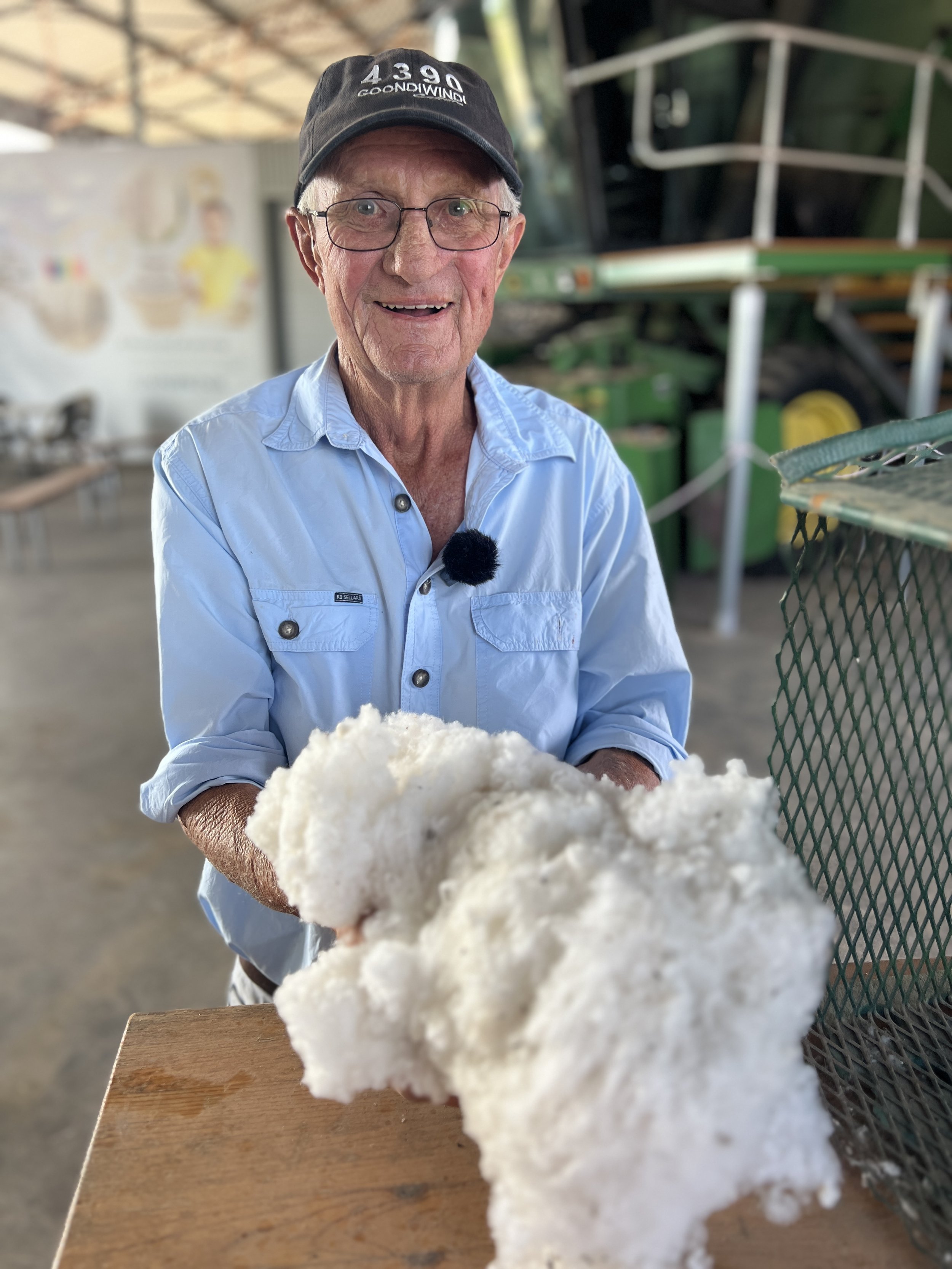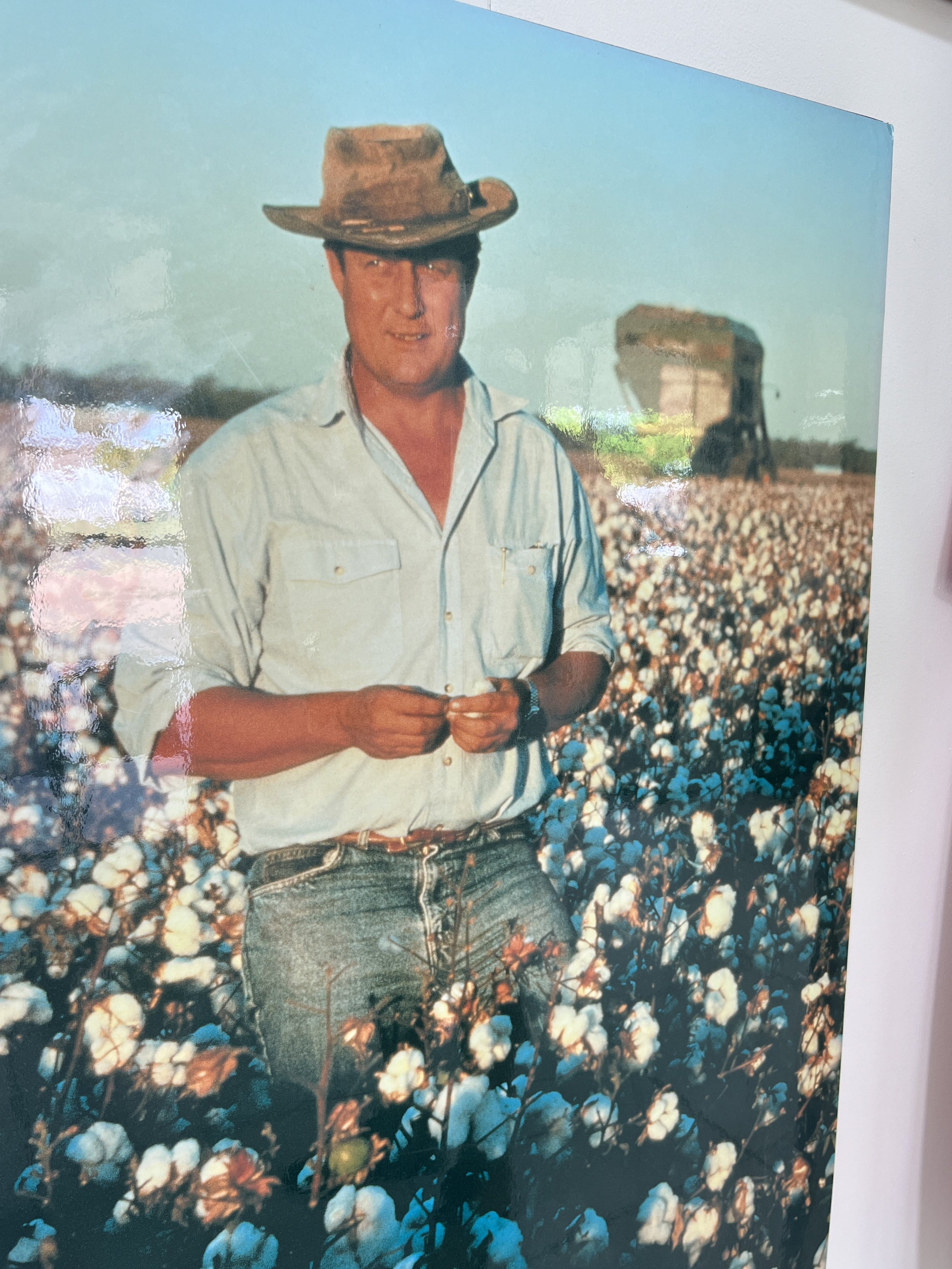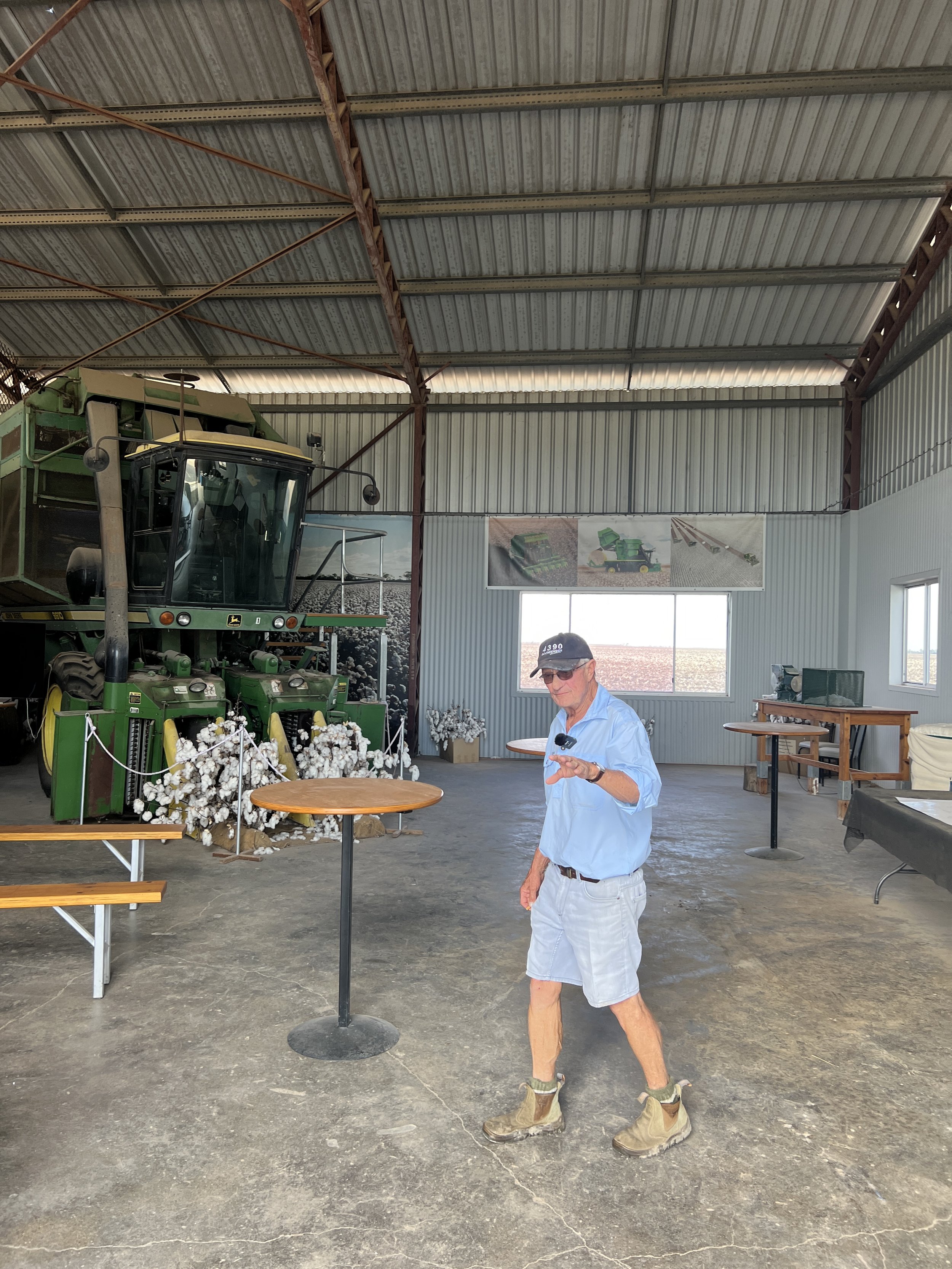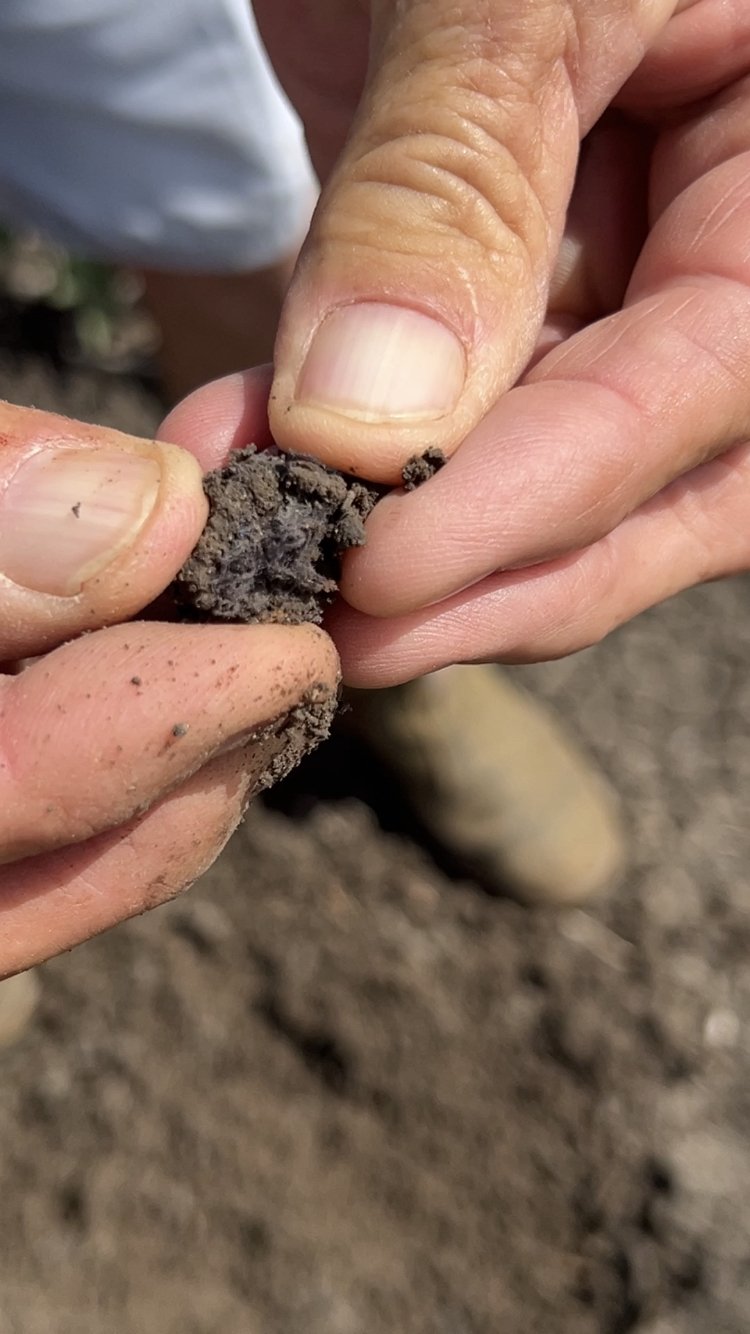From Cotton Fields to Fashion: A Journey of Adaptation and Sustainability with Sam Coulton
When it comes to things synonymous with visiting a farm, a tour is right up there. Sam Coulton takes great pride in it, so much so, that within his business he has established a dedicated crew to lead farm tours to support the education and understanding on their cotton farm near Goondiwindi.
The Coulton family have incredible ties in farming. Sam entered the world in the 1950’s and the farming businesses evolved from humble beginnings, including mixed grain and livestock farming, and now has a clothing and fashion business attached to it - Goondiwindi Cotton.
“All I wanted to do was come home, drive a tractor and get mixed up in agriculture.”
It wasn't until 1977 that the family planted their first cotton crop, a move that proved to be both risky and transformative.
“It [cotton cropping] costs so much to get into. And to go from a grain farmer to growing cloth on a bush just takes a bit of getting through the brain.”
Sam candidly admits that the decision to grow cotton was driven by financial desperation. Facing debts and uncertainty, he approached suppliers with a bold proposal, essentially saying,
“Give me another year on credit, and I'll grow cotton."
Fortunately, the suppliers took the gamble with him, and the first crop turned out to be a success, marking the beginning of their cotton farming journey.
Pictured: Sam Coulton in the paddock, captured while he took Humans Of Agriculture on a tour of his property.
“It's [cotton] the most profitable thing to grow per megalitre of water.”
It wasn’t all smooth sailing in those early years as they faced a flood that posed a significant setback. However, it was during these times of adversity that the family learned to adapt and evolve.
“We were growing a bale per megalitre of water. Now we're growing two bales per megalitre of water.”
“We used to spray 10 to 15 times with a pile of different chemicals. Now with plant breeding and Cotton Research Development Corporation those types of people have come through with… It [industry development in chemical use] is incredible”
Sam discusses the subsequent entry into the fashion industry, explaining the motivation behind turning their cotton into yarn for knitting and weaving.
“We have some of the best product in the world, Australian cotton farmers”
One of the critical turning points was the family's decision to bring manufacturing back to their hometown, Goondiwindi, to add value to their products and contribute to the local economy.
"If you take 500,000 bales [of cotton] into the Goondiwindi area, and you turn it all into t-shirts, you take it up into the billions of dollars. I mean, imagine the economy. It would just boom. So to value add that product, we started off that way."
Due to an increased demand and growth of the clothing line, manufacturing was eventually moved off-shore to Hong-King, China and India. While manufacturing has moved away from the region, Goondiwindi Cotton remains a major arterial vein for the region, future proofing employment for locals in challenging times such as drought.
Pictured: Sam Coulton, captured while he took Humans Of Agriculture on a tour of his property.
“We have product going all around Australia and overseas, now on a daily basis.
There’s dollars coming into town and they help keep the butcher, the baker and the candlestick maker going in our town.
Because when the droughts over, my bride will wanna have her hair done, and I'll want to go to the pub. I want to make sure they're open.”
As the conversation weaves through Sam's experiences and observations, it becomes clear that his worldview has been shaped by extensive travels and a deep understanding of the global dynamics at play. He highlights the stark contrast between Western expectations and the reality of life in developing countries, where sustainable practices often take unconventional forms, such as providing jobs and education for children.
Sam's story is an inspiration in demonstrating that with one man's innovation and commitment to sustainability as a whole, it is possible to transform challenges into opportunities that will benefit many in a community.
Find this episode below and check out some of the incredible videos from the day we spent with Sam on our social media channels!


